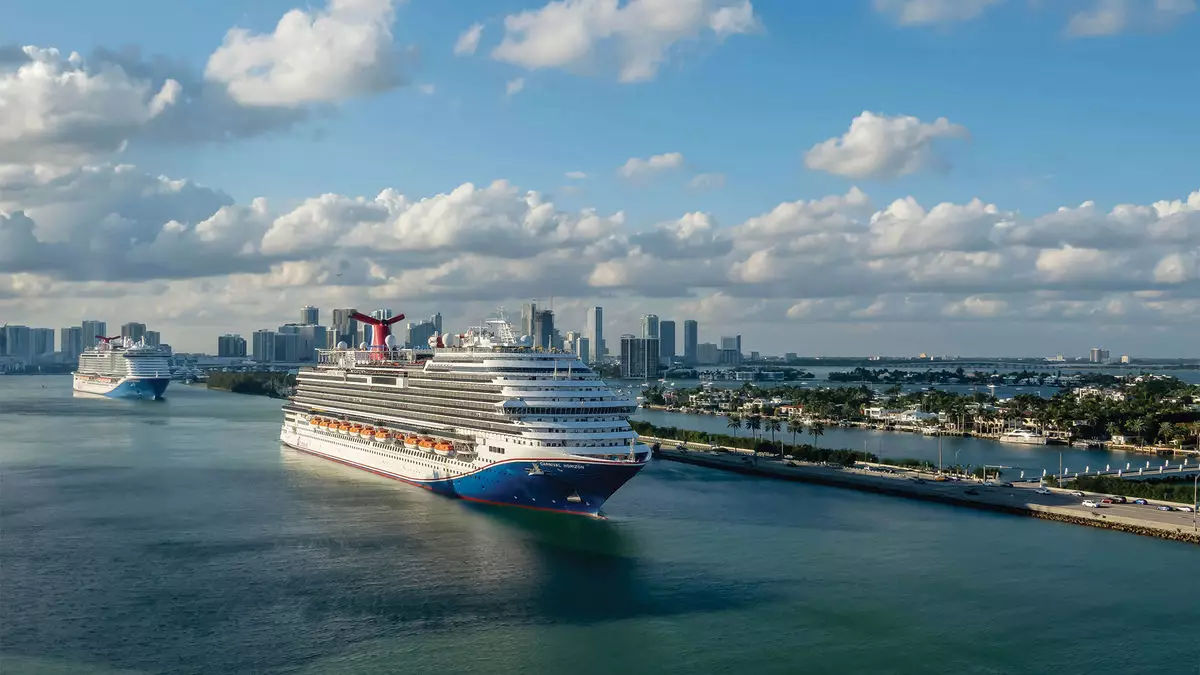Cruise vacations often encapsulate the essence of escape, offering travelers the allure of several destinations in a single trip. However, for many travelers, especially Americans, the rigidity of vacation schedules poses significant limitations. Jean-Paul Rodrigue, a professor at Texas A&M University-Galveston, articulates this issue, emphasizing the “time-budget constraint” that ideally confines a traveler’s experience to the duration of their cruise. Vacationers typically have a week to unwind, largely dedicated to the cruise itinerary, meaning that opportunities for additional exploration in ports of call are often viewed merely as bonuses rather than integral parts of their holiday. With limited flexibility, many do not consider extending their trips to include pre- or post-cruise stays.
This mentality has sparked interest among destination marketing organizations (DMOs) such as Visit Florida, which recognizes an imperative to shift this perception. Rather than framing local experiences as a time-consuming add-on, the aim is to incorporate these experiences into the overall vacation narrative. By modifying how people envision their trips—from being solely committed to their cruises to integrating the local area into their travel plans—DMOs hope to unlock new avenues for enhancing traveler experiences.
Brett Laiken, the chief marketing officer for Visit Florida, articulates a progressive strategy in encouraging cruisers to think of their arrival in the state as the beginning of their journey. By marketing local experiences as essential adventuring that dovetails with the cruise, his platform attempts to redefine how vacationers perceive their travel agendas. This includes encouraging engagements in excursions upon arrival and extending the experience beyond just the cruise itself.
One of the pivotal tactics employed by Visit Florida is a comprehensive campaign aimed at travel advisors. The initiative recognizes the authority and impact these advisors have when it comes to shaping client decisions. Laiken’s approach showcases the importance of integrating additional experiences into the travel itinerary: “From the time you land in Florida, this is what you’re going to do,” he emphasizes, merging the concept of pre- and post-cruise journeys to create a more fulfilling overall vacation.
Visit Florida’s strategy appears to have borne fruit, as Laiken highlighted the program’s success in driving over $14 million in incremental bookings for pre- and post-cruise packages. This tangible success underlines the importance of collaboration between DMOs and travel advisors, who serve as intermediaries in influencing traveler choices. The aim is not just to market a cruise but to offer travel as a holistic package that encompasses experiences on land coupled with the allure of a sea voyage.
Other destinations are likewise leveraging this model. New Orleans & Co., for example, has prioritized fostering relationships with travel advisors, emphasizing the value of creating unique offers that remain accessible only through their networks. Initiatives like providing discounted cruise coupons elevate the relationship between the advisors and local tourism boards, consequently enriching customer loyalty for both parties.
By emphasizing unique perks for travel advisors, New Orleans & Co. aims to create a seamless booking process, ensuring that the advisement process is straightforward and user-friendly. The personalized approach, where advisors can request customized itineraries even for short stopovers, adds significant value to the client experience, driving enhanced interactions between destination marketing organizations and travel professionals.
Similar collaborations are seen in the actions of Visit Lauderdale, which has built partnerships with travel agencies to create tailored packages that resonate with pre- and post-cruise guests. By combining resources and knowledge, both DMOs and travel advisors can formulate promotional packages that not only appeal to cruisers but also enhance their comprehensive experience of the destination.
The landscape of cruise travel is evolving, with a growing recognition of the critical role that destination marketing can play in enriching the traveler experience. By fostering a shift in perception—from viewing the cruise experience as standalone to integrating the destination into the overall travel narrative—DMOs can significantly enhance the appeal of their locales to potential cruisers. The implementation of strategic campaigns that empower travel advisors will likely continue to yield positive results, ultimately leading to increased engagement and revenue for local tourism sectors. As the industry evolves, it will be essential to keep prioritizing collaboration, innovative marketing, and the desire to create unforgettable experiences in both land and sea travel.

